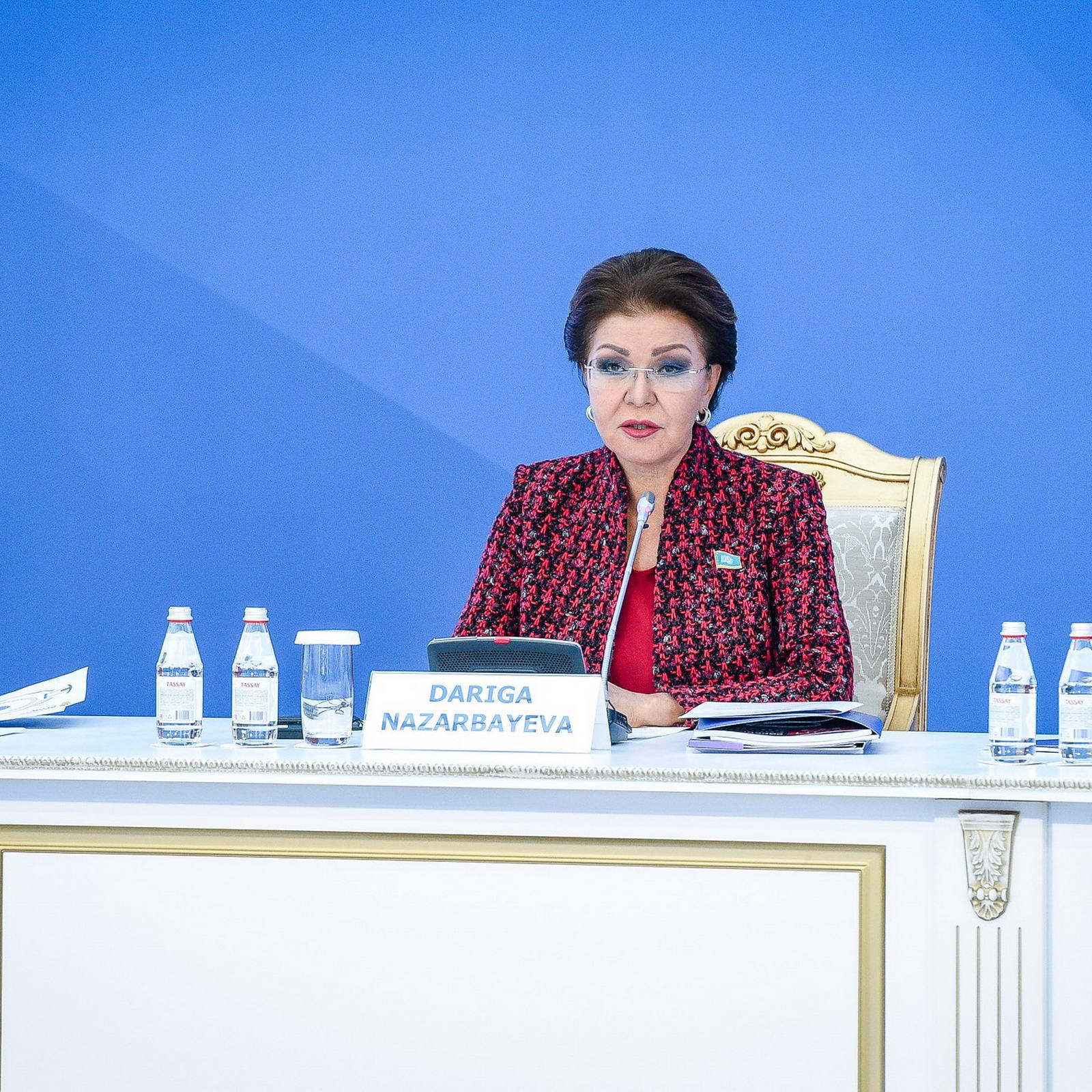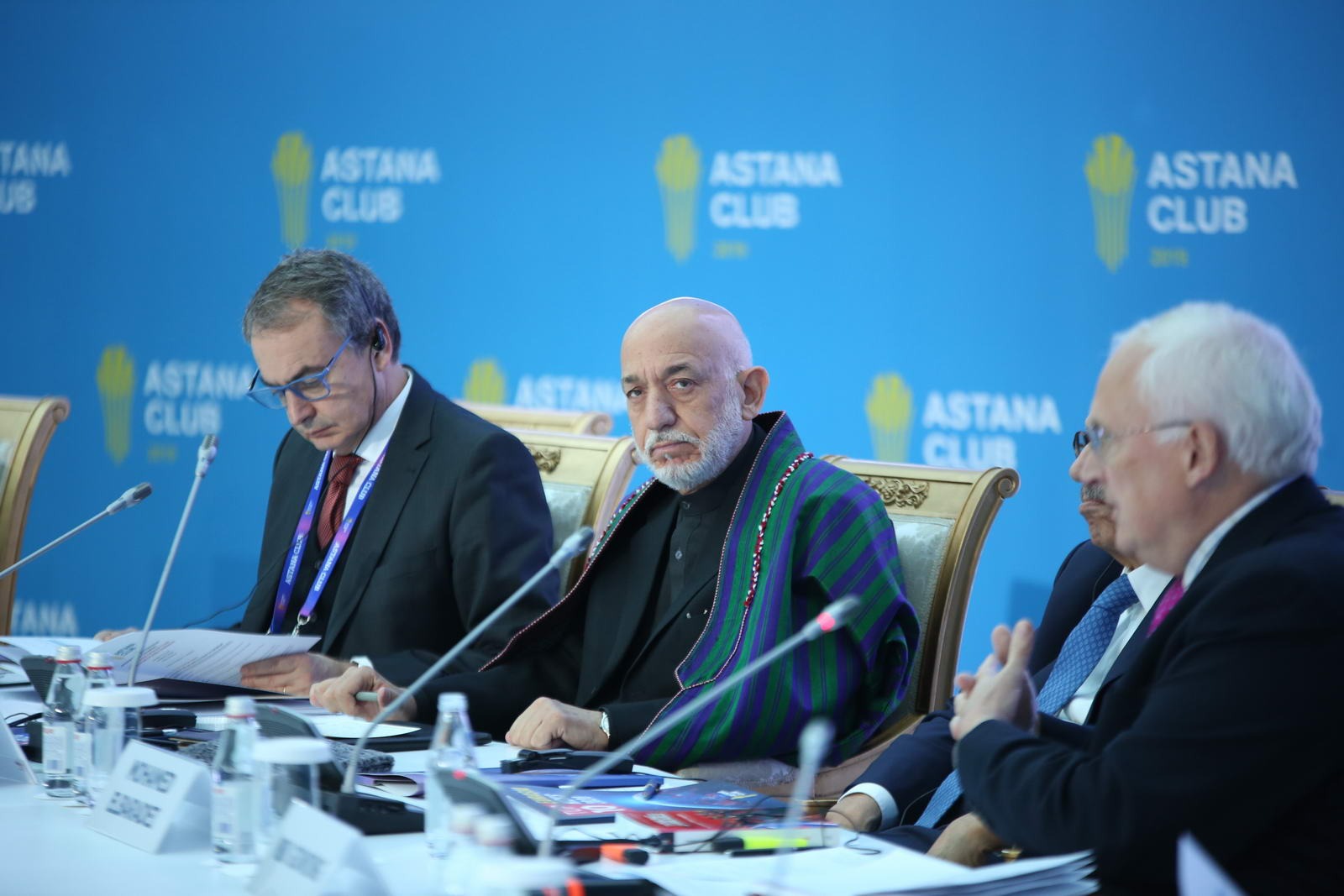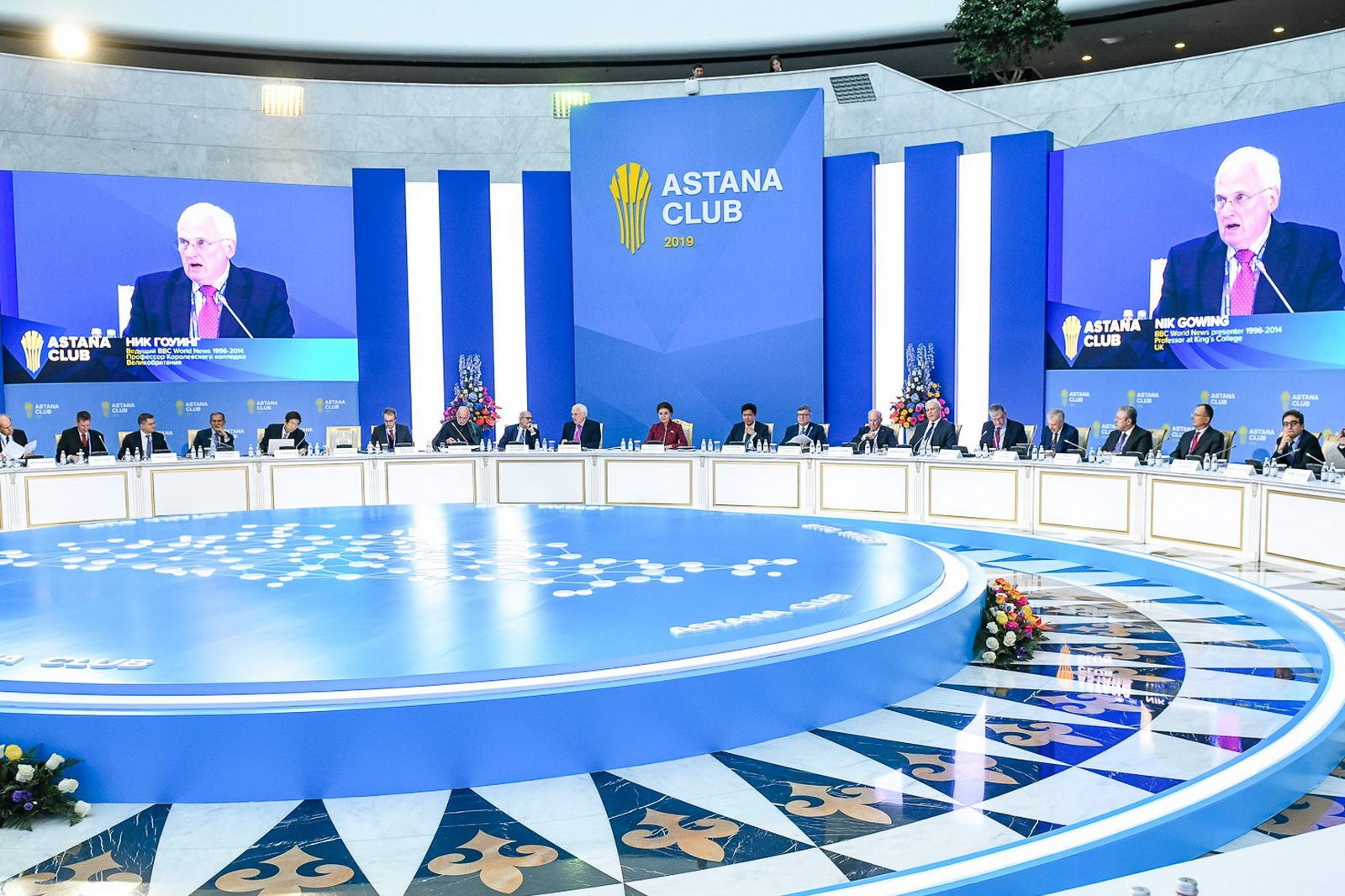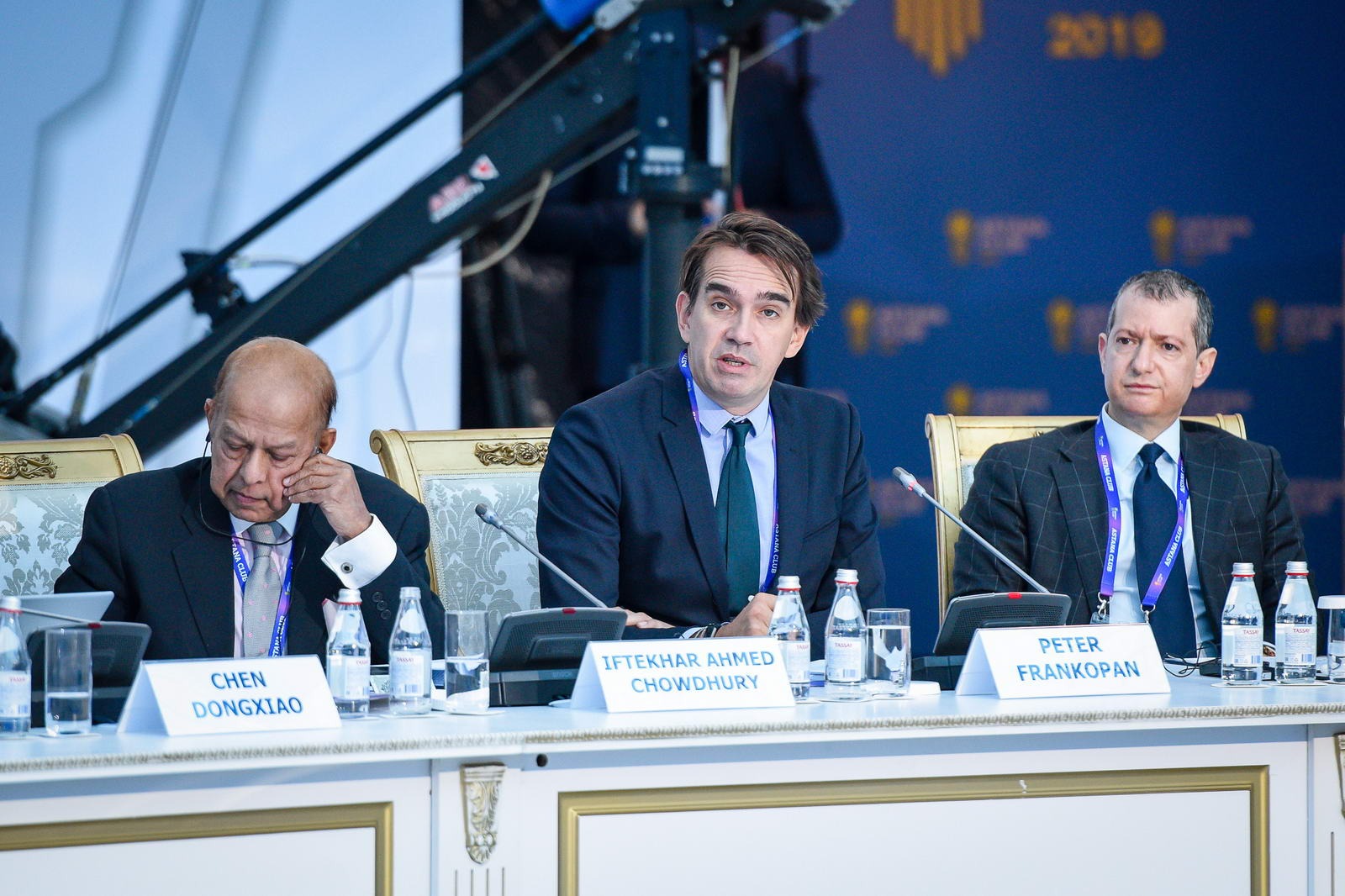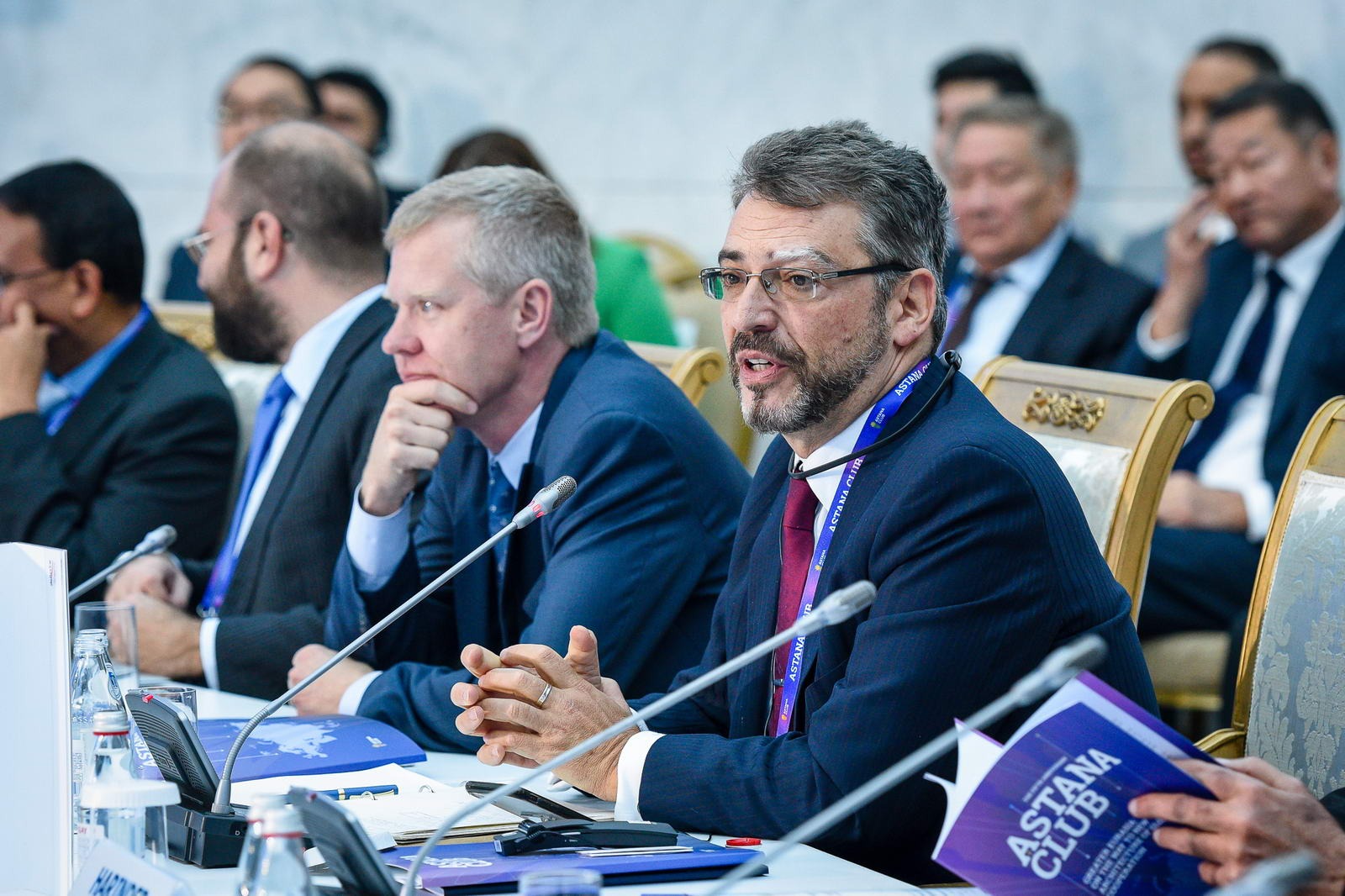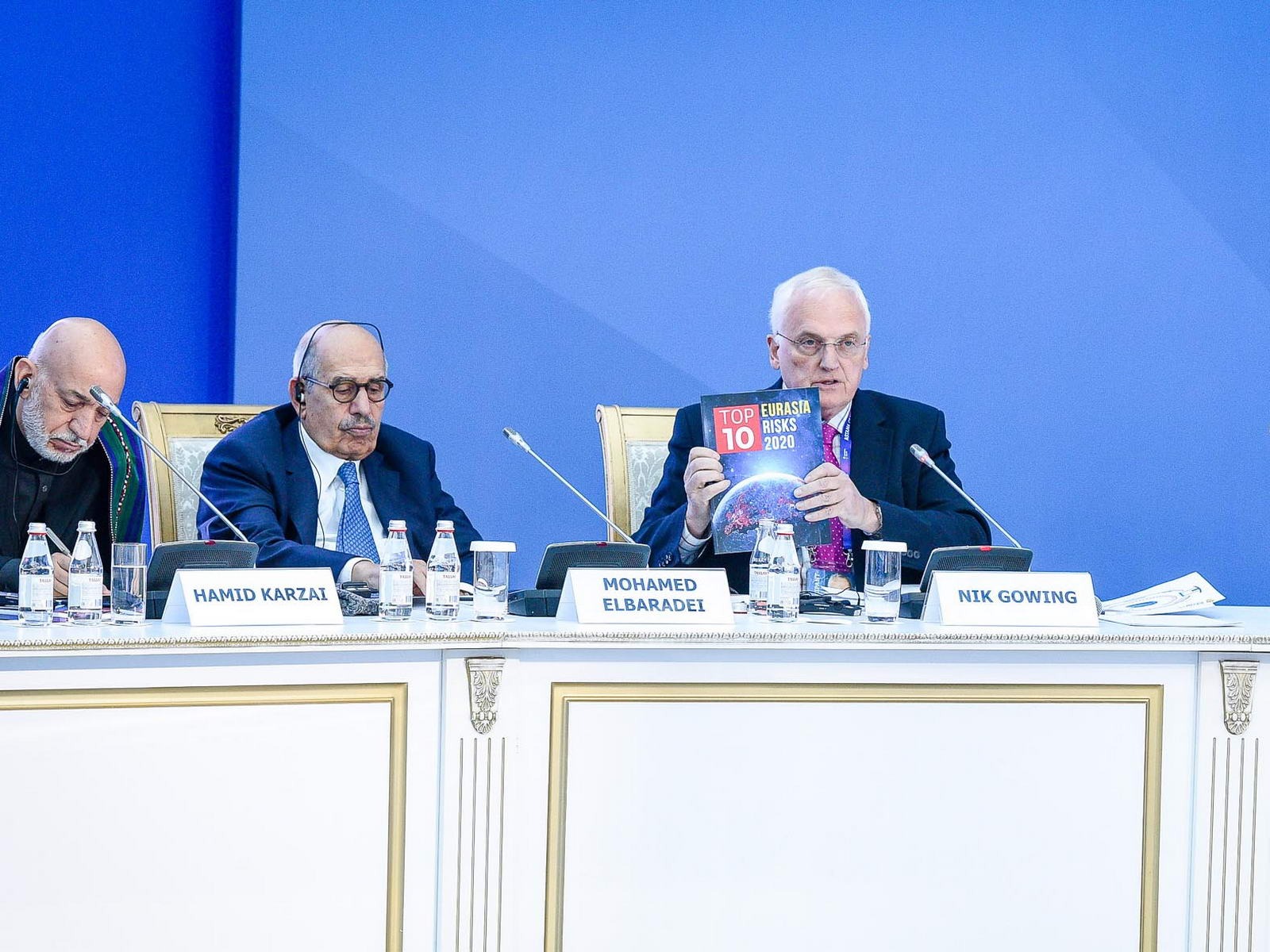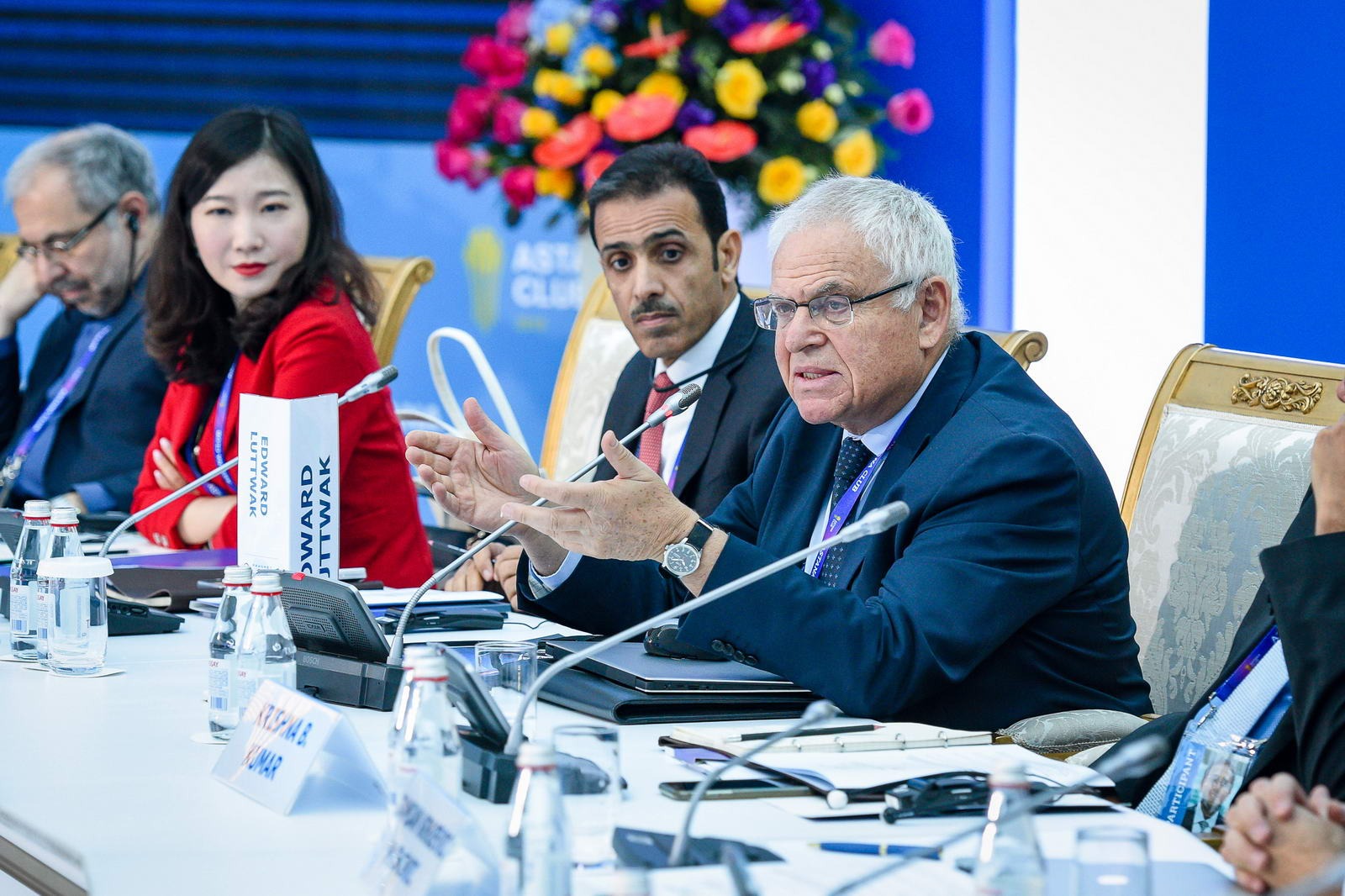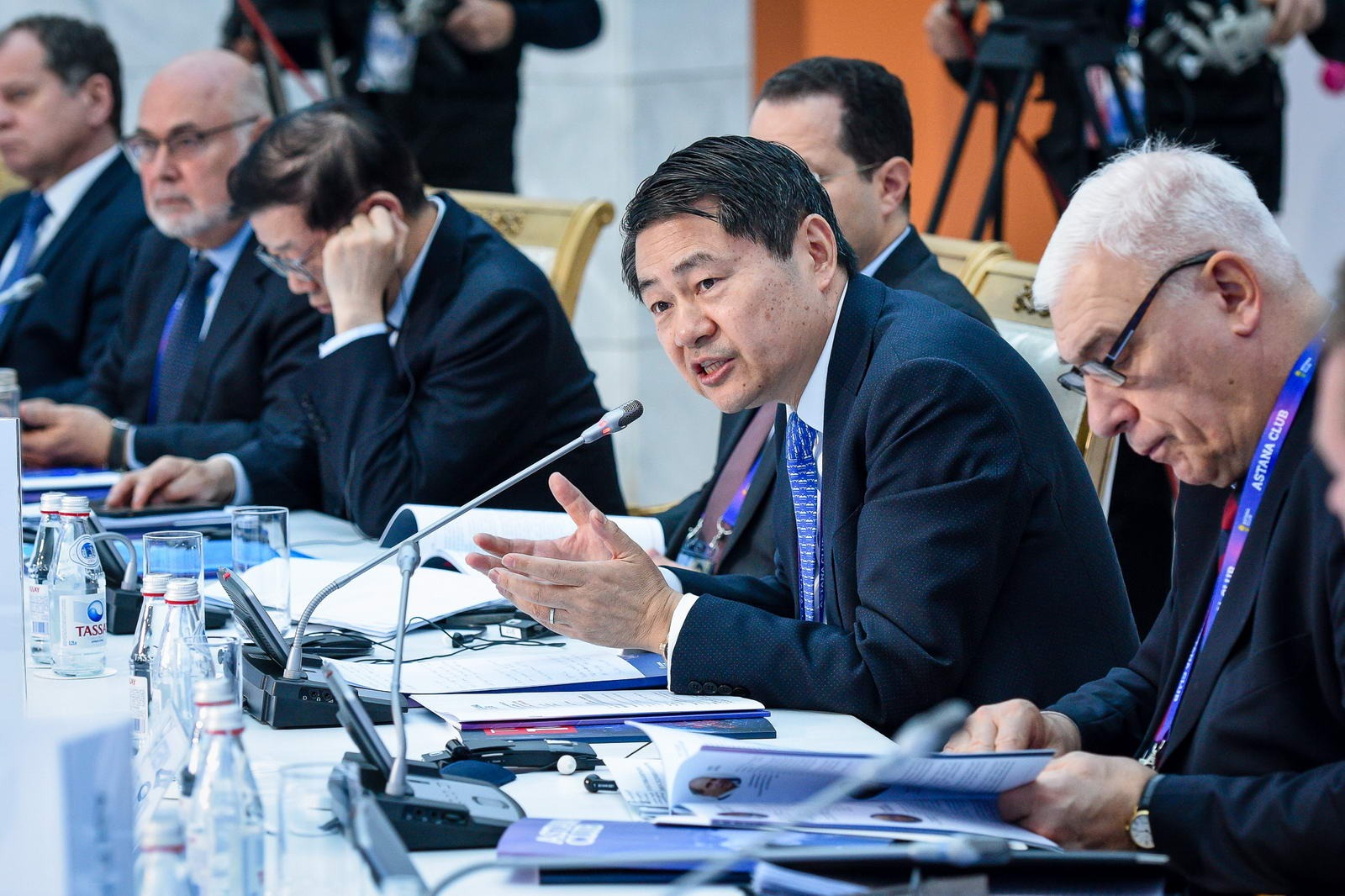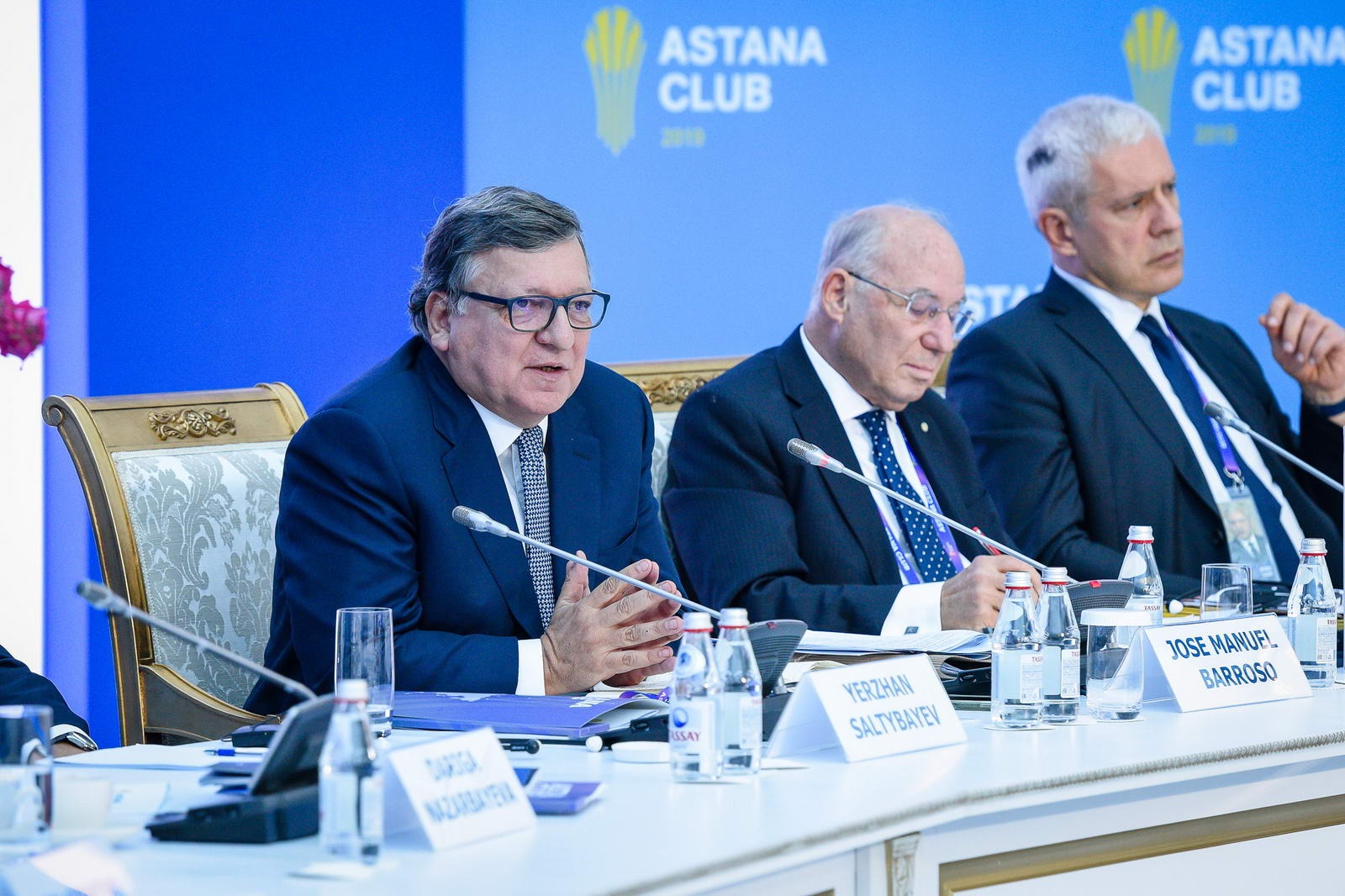Top 10 risks for Eurasia presented at the meeting of Astana club
The annual meeting of the Astana club is held in Nur Sultan. The main theme is «Greater Eurasia: Towards a New Architecture of Global Cooperation».
A large-scale international dialogue platform, organized by the Foundation of the First President of the Republic of Kazakhstan - Elbasy, the Institute of World Economics and Politics under the Foundation, for the fifth time gathered in the capital of Kazakhstan more than 50 authoritative politicians of the world. These are recognized intellectuals of Eurasia and the best experts in the field of international relations.
Key speakers are – the President of Afghanistan (2001-2014) Hamid Karzai, the President of Slovenia (2007-2012) Danilo Turk, the Laureate of Nobel Peace Prize (2005), the General Director of the International Atomic Energy Agency (2013-2014) Mohammed El Baradei, Chairman of the Board of JP Morgan Chase, International Jacob Frenkel, the Prime Minister of Belgium (2008, 2009 -2011), the General Secretary of the International institute IDEA, Belgium, Yves Leterm.
Today, the second edition of the Risk Rating «Top 10 Risks for Eurasia in 2020» was presented. The key goal of creating an annual rating is to assess and scenario-based forecasting of the most significant risks in the Eurasia region.
40 authoritative experts and politicians took part in the study, whose opinion is taken into account by state leaders, international institutions and major mass media. In addition, more than 1,100 professional respondents from 70 countries were interviewed using the questionnaire survey method.
The key risks for Eurasia in 2020 included:
1. Aftershocks of the US presidential election in 2020.
2. The global economic recession.
3. The escalation of the confrontation between the United States and China.
4. A new stage in the global arms race.
5. Aggravation of the struggle for technological dominance.
6. The military campaign against Iran.
7. The nuclear crisis on the Korean peninsula.
8. A new surge in terrorism.
9. The wave of aggressive nationalism and populism.
10. Large-scale problems due to climate change.
During the work of the Astana club, issues of preventing the realization of these threats and the possibility of overcoming geopolitical crises are openly discussed.

